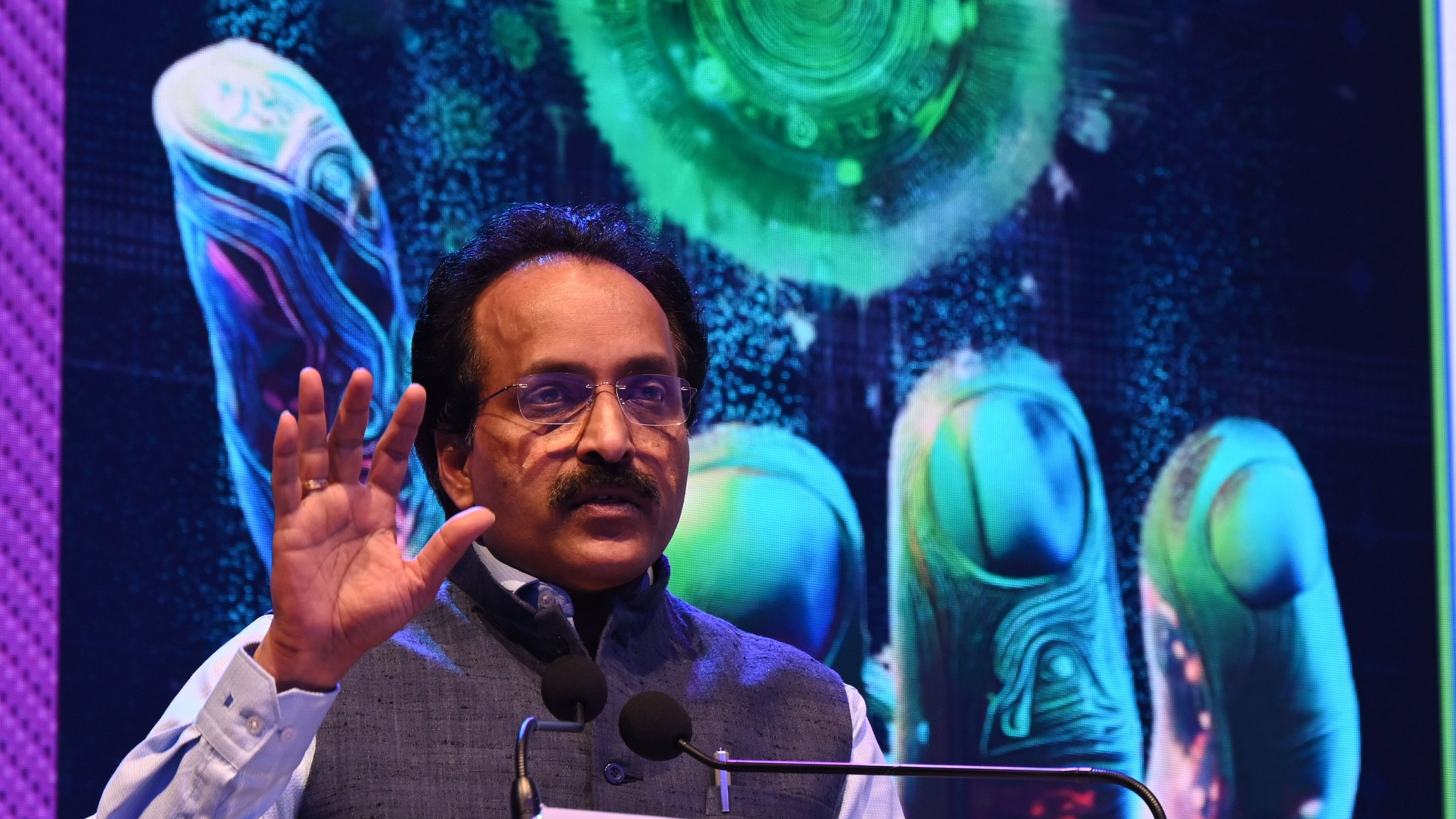
Isro chairman S Somanath at the Bengaluru Tech Summit on Wednesday.
Credit: DH photo/B K Janardhan
Bengaluru: Karnataka aims to capture at least 50% of India's space sector and a 5 per cent share of the $44-billion global space industry by the next decade, according to the draft Karnataka Space Technology Policy 2024-2029.
The policy was unveiled by IT-BT Minister Priyank Kharge and Indian Space Research Organisation (Isro) chairman S Somanath on the second day of the Bengaluru Tech Summit on Wednesday.
The policy, prepared by the Department of Electronics, Information Technology, Biotechnology and Science and Technology, focuses on all aspects of the space value chain, including commercial, defence, electronics and research in astronomy and astrophysics. It has outlined five key missions, namely skill development, investments, infrastructure, innovation and facilitation, and adoption and awareness.
Karnataka plans to train 5,000 students and young professionals, including 1,500 women, for employment in the domestic and global space sectors and attract investments worth $3 billion through incentives, outreach and campaigns.
It also plans to establish a space manufacturing cluster and testing centres through public-private partnerships (PPP), and provide shared access to testing facilities across the state.
The state has outlined an ambitious plan to foster 500 startups and MSMEs with grants, funding and subsidies to boost innovation, enabling the launch of over 50 satellites with significant indigenisation.
The state government wants to use the Digital Public Infrastructure and Digital Public Goods (DGI/DGP) model to promote the use of space technologies across sectors like agriculture, forestry, fisheries and urban development, and offering revenue-based incentives for downstream applications with socio-economic benefits.
At the summit, the department also signed a Memorandum of Understanding (MoU) with the Defence Research and Development Organisation (DRDO) on cooperation and promotion of the defence industrial ecosystem of Karnataka.
Somanath laid down the vision of the Indian space programme leading up to 2047 and its various missions, like Gaganyaan.
He emphasised that the Indian Space Policy, 2023, had helped many Indian startups accelerate their innovation journey. According to him, Indian startups have demonstrated both launch vehicle and satellite manufacturing and operations capabilities.
He stated that technology transfer to India's private sector was an important initiative for Isro and noted that Bengaluru was emerging as a destination for new space companies and startups.
India's Space Tech Capital
Speaking to DH on the sidelines of the event, Kharge said Bengaluru by default was India's Space Tech Capital.
"We have Isro, NAL, HAL, BEL, and many space-related startups. We have also requested 250 acres across the state for building infrastructure as part of the draft space tech policy."
Speaking of the government's focus on downstream applications of space tech innovation, he said: "We can use startups which innovate in surveying geospatial topography or want to manufacture a component which can be used for rockets or spaceships. Having said that, downstream applications is what we are concentrating on, things that are built for space, which can be used in other verticals like agriculture, mining, safety and cyber security."
The government has planned a similar policy for deftronics (defence electronics), he added.
"Currently, India holds 2% of the global market share in the space industry. We aim to make it 10% by the next decade," he said.
He also emphasised that India should indigenise across industries. "If India can manufacture sensors for Isro's space missions, automobile manufacturers can also do it instead of importing parts like sensors," he remarked.